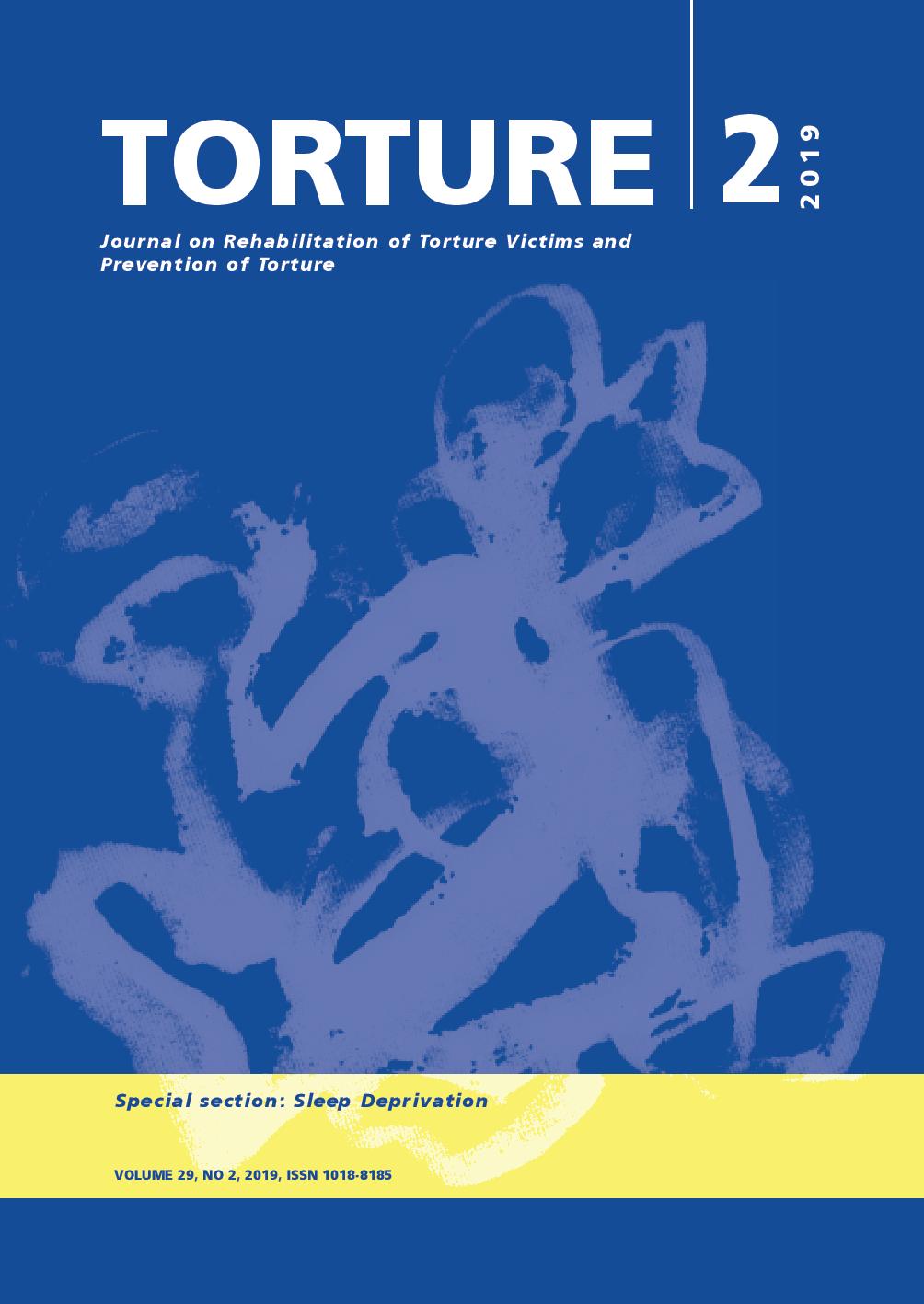A problematic Israeli High Court dismissal of a torture complaint. A commentary by Hans Draminsky Petersen, MD
DOI:
https://doi.org/10.7146/torture.v29i2.116128Keywords:
Israel torture ill-treatment documentation definition Istanbul ProtocolAbstract
It is not for the documenting medical experts (Shir, 2019), but for the court to decide whether the level of pain and suffering inflicted reaches the threshold of torture [while disregarding ill-treatment], i.e., the court upholds the prerogative to apply its own interpretation of the definition of torture, no matter existing medical evidence and disregarding the Istanbul Protocol. The criteria used to determine the level of FT's pain and suffering does not appear in the ruling.
The ruling states that the burden of proof that the "means" were not reasonable [constituting torture] falls upon the petitioner (para 36). In the light of the above (1, a-h) this is in practice impossible for the petitioner to establish. This aligns with Shir’s statement that no ISA interrogator has been indicted in 1200 torture complaints.
References
National Research Council of the National Academies (2003). The Polygraph and Lie Detection. Washington, D.C. doi: https://doi. org/10.17226/10420
Pérez-Sales, P (2017). Psychological Torture. Abingdon, UK and New York, USA. Routledge.
Shir, E. (2019). How to say IP in Hebrew. The case of Mr. Firas Tbeish. Torture Journal 29(2), 89-94. https://doi.org/10.7146/torture.v29i2.114967
Firas Tbeish et al. v the Attorney General et al., HCJ 9018/17 (2018), retrieved from http://stoptorture. org.il/wp-content/uploads/2017/02/F.-Tbeish- Ruling-Nov. 2018.ENG_.pdf
United Nations Committee against Torture (2016). Concluding observations on the fifth periodic report of Israel. Retrieved from https://tbinternet. ohchr.org/_layouts/15/treatybodyexternal/Download.aspx?symbolno=CAT/C/ISR/ CO/5&Lang=En
Convention against Torture and Other Cruel, Inhuman or Degrading Treatment or Punishment, New York 10 December 1984, United Nations Treaty Series, vol. 1465, p 85, retrieved from www.ohchr.org/ EN/ProfessionalInterest/Pages/CAT.aspx
UN Office of the High Commissioner for Human Rights (OHCHR), Manual on the Effective Investigation and Documentation of Torture and Other Cruel, Inhuman or Degrading Treatment or Punishment (“Istanbul Protocol”), 2004, HR/P/ PT/8/Rev.1, retrieved from https://www.ohchr.org/_layouts/15/WopiFrame.aspx?sourcedoc=%2 FDocuments%2FPublications%2Ftraining8Rev1en%2Epdf&action=view
UN General Assembly, Principles of Medical Ethics relevant to the Role of Health Personnel, particularly Physicians, in the Protection of Prisoners and Detainees against Torture and Other Cruel, Inhuman or Degrading Treatment or Punishment, 16 December 1983, A/RES/37/194, retrieved from https://www.ohchr.org/EN/ProfessionalInterest/ Pages/MedicalEthics.aspx
UN General Assembly, United Nations Standard Minimum Rules for the Treatment of Prisoners (the Nelson Mandela Rules) : resolution / adopted by the General Assembly, 8 January 2016, A/RES/70/175, retrieved from https://www.ohchr.org/_layouts/15/WopiFrame.aspx?sourcedoc=/Documents/ ProfessionalInterest/NelsonMandelaRules.pdf&action=default&DefaultItemOpen=1
World Medical Association, Declaration of Tokyo—Guidelines for Physicians concerning Torture and Other Cruel, Inhuman or Degrading Treatment or Punishment in Relation to Detention and Imprisonment, October 1975 retrieved
Downloads
Published
How to Cite
Issue
Section
License
We accept that some authors (e.g. government employees in some countries) are unable to transfer copyright. The Creative Commons Licence Attribution-NonCommercial-NoDerivatives 4.0 International (CC BY-NC-ND 4.0) covers both the Torture Journal and the IRCT web site. The publisher will not put any limitation on the personal freedom of the author to use material contained in the paper in other works which may be published, provided that acknowledgement is made to the original place of publication.


